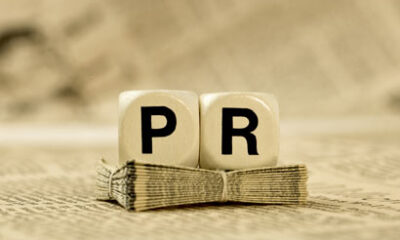Business
How to Make Negative PR work for your Business

The idea behind negative PR is to destroy a company’s reputation and corporate identity. Usually a process, dark public relations aims to discredit someone or a rival company that pose a threat to another business. Negative press can potentially damage an organisation, particularly a growing one. It can involve spreading negative information or even use misleading facts to fool a competitor or to deter potential investors and customers. It’s a sad world we live in. Most companies or entrepreneurs who you may find are already successful would still want to put other businesses down for their own gain. The corporate world can be a selfish place.
Dark public relations can be of various types. Sometimes you will receive a poor review that’s obviously fake, which can be particularly frustrating. Such dark PR usually is the one that can damage your company, especially if it’s in bulk. Negative PR can also come from a customer who had a bad experience with your company. Perhaps for some reason, the customer was not satisfied with your product or service and felt compelled to let the world know about it. And then there is that disgruntled ex-employee who feels the need to spoil the company for pure satisfaction. Luckily, these kinds of dark PR are easy to sort out since they tend to reference detailed company information that can be traced back to them. Not such a wise move on their part.
“There is no such thing as bad publicity” – Phineas T. Barnum, a 19th century American showman and circus owner
Companies and business owners have found ways to benefit from dark public relations. Necessity truly is the mother of invention. There are a variety of ways of turning negative PR into something beneficial and even profitable for your business. Here are a few I have summed up:
Avoid immediate retaliation
As tempting and frustrating it can be, try not to respond immediately. The reputation of the business is literally on the line. An immediate response could add more damage to the situation since it is, more often than not, written with emotion not to mention unprofessional. As an entrepreneur, you mission as a businessman is not to create enemies. Ultimately, you want them on your side for the good of the business and for future references in terms of potential investors and such. The internet does not forget, so tread carefully.
Examine the Message
Look into the legitimacy of the review. Is it true? Are the facts presented true? Find out within the company and conduct customer satisfaction surveys if possible. A poor review, if legitimate, can potentially expose an actual problem with the company that can either help an entrepreneur fix the problem. It helps the company treat the dark PR as a business problem and not a personal attack. In turn, quality of the product or service is refined and polished.
Contact the Reviewer Offline
As I mentioned earlier, use this as an opportunity to see the negativity as a business problem that needs to be solved. One way of doing that is by contacting the reviewer directly via phone or email, away from the public eye to see if you can make things right. It creates an emotional bond to the reviewer – personal touch as an entrepreneur is important. That is, of course, if the complaint is legitimate. More often than not, after having a conversation with the reviewer and understanding what the issue really is, the reviewer will delete the review. By responding to negative PR in this responsible way, the entrepreneur is able to turn negative responders into loyal customers
If you cannot fix it, acknowledge it
If you can’t fix the problem, take responsibility for it. If at all the customer is still not convinced, try to publicly accept your mistakes and apologize. And while you acknowledge the issue, try not to retaliate negative – it spoils the sincerity of the apology and it is unprofessional. The idea here is to calm the fire, not start one.
Transparency
The primary reason most businesses get bad publicity is because they are not genuine or they have failed to take action at the right time or they have tested the patience of their clients and customers. It is not rocket science; you need to be honest and transparent in your operations in order to avoid incidents like these. Sometimes, even when you and your organisation behave responsibly, you run the small risk of an unexpected PR disaster. In this age, bad publicity can reach the masses before you even think of mounting a defense.










